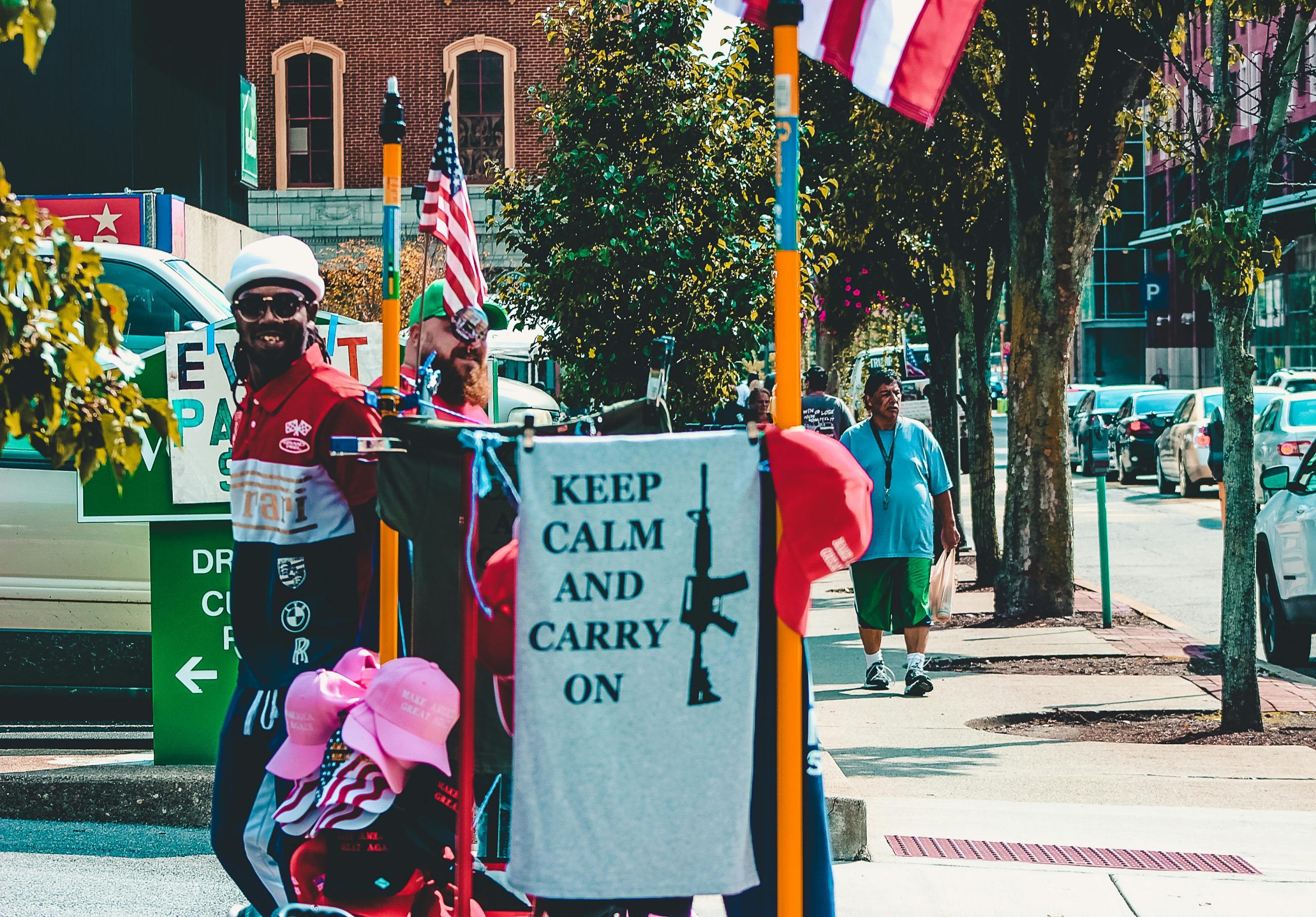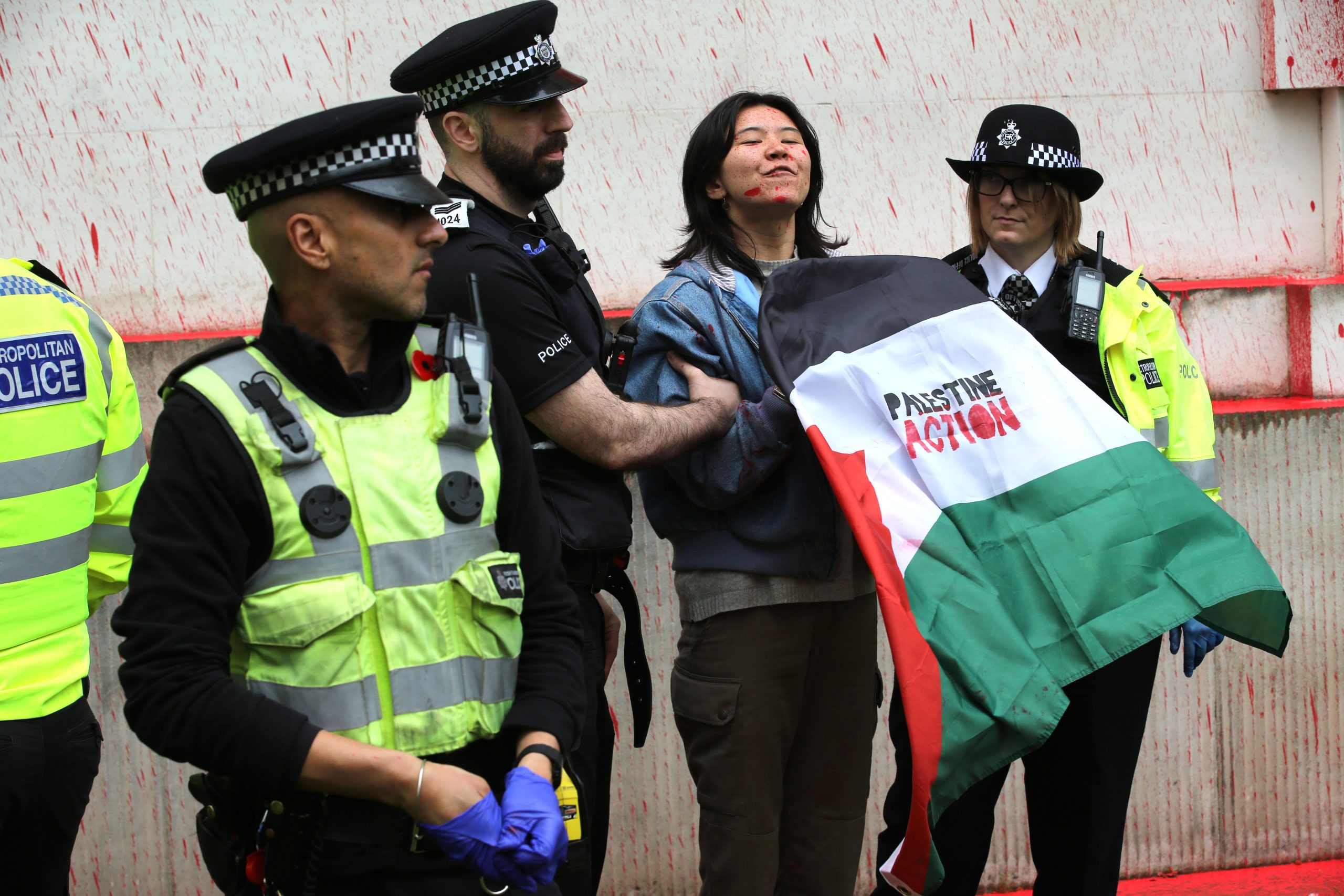This article was originally published in Ukrainian media outlet Zaborona. We translate it with their permission.
In December 2018, Ukraine’s Security Services (SBU) conducted searches at the homes of seven anarchists. According to the activists, SBU officers forced two anarchists to sign a cooperation agreement, and one of the activists had her passport confiscated.
Who have you come for?
Early on the morning of 6 December, officers of the National Police, Prosecutor’s Office and SBU searched the homes of anarchists in Kyiv, Brovary, Dnipro and Lviv. In Lviv, west Ukraine, investigators visited three addresses — Taras Bohay (Ecological Initiative), Oleh Kordiyaka (Black Banner) and a woman who asked for her name not to be published for security reasons.
In Kyiv, investigators searched the home of Khrystyna, 19, and in Brovary, a town outside the Ukrainian capital, law enforcement visited the official place of residence for Roman, 20, though they only found the activist’s mother at home (he does not live there). In Dnipro (formerly Dnipropetrovsk), the police visited the apartment of Natalya and Maksym, both 20.
Khrystyna, Roman, Natalya and Maksym say that they are not members of any organisation, and call themselves “autonomous participants of the anarchist movement”. They don’t give out their surnames, as they are concerned about possible attacks by radical nationalist groups. As in the case of other anarchists, they believe it’s best to act anonymously: they use false names in social media and cover their faces at public protests.
Previously, only the searches of the apartments Lviv activists, who are publicly active, were reported in the media. The remaining activists did not report the searches, but later they agreed to share their stories with Zaborona.
Grounds for search
Kyiv’s Podil District Court issued the warrants for all six searches, which state that these investigative actions are being conducted as part of a investigation into an attack on a former Right Sector ( a far-right Ukrainian nationalist political party) volunteer fighter, Dmytro “Verbych” Ivashchenko.
On 2 May 2018, Ivashchenko was attacked in the Podil district of Kyiv. Three men and women wearing masks assaulted him, stabbing him in the back. Ivashchenko spent an extended period of the time in hospital as a result.
The police established the identities of only two of the attackers — Kseniya Lapynska from Chernihiv and Vyacheslav Lukichev. Lapynska, 25, was arrested almost immediately after the incident, and was given a three year suspended sentence. The second likely attacker, Lukichev, 24, is a Russian anarchist — he managed to leave Ukraine before being detained. In November 2018, he was arrested in Kaliningrad on suspicion of “justifying terrorism online”. The investigation into Lukichev was opened after he called Mikhail Zhlobitsky, the man who set off a bomb at an FSB office in Arkhangelsk on 31 October, a “hero” online.
The court decisions regarding the 6 December searches state that the activists whose homes were searched could be complicit in the attack on Ivashchenko. The warrants do not clarify on what grounds law enforcement have these suspicions.
Questoning, detention, attempts at recruitment
In the process of searching the activists’ apartments, Ukrainian law enforcement confiscated computers, telephones, flash drives and hard disks belonging to the activists. Several of them also had clothes, paint and posters confiscated.
After the searches finished, the activists, apart from Roman (Brovary), were taken to police stations for questioning. According to them, they were questioned for several hours about what they know about the attack on Dmytro Ivashchenko. Investigators were also interested in the civic and political activity of the activists and their acquaintances. After questioning, they were released without charge.
Khrystyna, from Kyiv, complained that while she was in Podil District Police Station, an SBU officer forced her to sign an agreement to cooperate.
“He said: let’s cooperate, then we’ll let you go,” she says. “I was really afraid, I didn’t know if anyone else knew they’d detained me. I realised I could be there for 24 hours and that no one would know about it. So I signed the paper that said I will cooperate with the SBU.”
According to Khrystyna, after the investigation, SBU officers called her several times and proposed meeting, but she refused. She says that she signed the agreement only in order to be released, and she didn’t want any further contact with the security services. Afraid of persecution, Khrystyna changed her apartment and telephone number, and created new social media accounts. After questioning, the police did not return Khrystyna her passport — they only returned her papers on 21 December, after she made a complaint to the Prosecutor’s Office.
Maksym, from Dnipro, also stated that SBU officers forced him to sign a cooperation agreement. According to his wife Natalya, SBU officers were rude to them during questioning, pressuring and trying to force them to stop their civic activities. Natalya says that several days after the search, an SBU officer summoned Maksym for an informal chat, to which the activist agreed. During the meeting, the SBU officer asked the young man for information on other activists in Dnipro. Natalya says that they no longer answer calls from their “curator” as they call him, and have changed their place of residence.
What the Prosecutor’s Office and SBU believe
In response to an official information request by Zaborona, Kyiv’s Prosecutor Office stated that these searches were conducted to identify all persons complicit in the attack on Dmytro Ivashchenko. At the same time, the ministry’s press office did not explain how these seven anarchists are connected with this crime, citing the need to keep investigation materials confidential. On this basis, the Prosecutor’s Office refused to comment on the results of the searches and did not report what status the activists have in the investigation.
The Prosecutor’s Office states that no one was detained after the searches, including Khrystyna from Kyiv.
“Khrystyna […], who was mentioned in your request, came to Podil Police Station in order to give an explanatory statement, although she could not provide information towards evidence for the criminal investigation, in connection with which she was not questioned as an evidence. Her passport was not confiscated. According to information from Podil Police Station, she left the document in the investigator’s office.”
As to the activists in Dnipro, the Prosecutor’s Office stated that they had not received a complaint of possible unlawful actions by law enforcement officers.
In response to an information request by Zaborona, the SBU stated only that “SBU officers operated within the framework of current legislation”. The agency refused to give any other comment, stating that “information of a pre-trial investigation cannot be publicised”.
The activists’ position
All seven activists whose homes were searched insist that they bear no relation to the attack on Dmytro Ivashchenko — and they don’t know who did. According to them, they are involved in legal civic activity — they organise ecological and animal rights demonstrations, campaigns against development and in support of trade unions, as well as lectures and film screenings.
The anarchists believe that the SBU has used the attack on Ivashchenko as a pretext to pressure them and collect information on participants in their movement.
“They came to me because I’ve been involved in activism for a long time, and I don’t hide my views,” says Taras Bohay. “I think that they knew that I had nothing to do with the attack. They were just interested in my correspondence, chats. They collect information on people who are involved in social activism.”
Bohay and his comrades are yet to get used to increased attention from law enforcement. For example, in September this year, the police dispersed an animal rights action by Ecological Platform in Lviv, and earlier this year the SBU raided the organisation’s summer camp in the Carpathian mountains, recording all the participants’ personal details in the process.
“There were also regular attacks by the far right on Ecological Platform activists and other anti-authoritarian organisations, as well as people with anti-fascist views. In some instances, the attacks took place with assistance from the police — as was the case in the attack after the feminist march on 8 March, when the police blocked the route of a tram in which activists were traveling, and the far right then attacked them,” says Bohay.
Bohay believes that these recent attacks on activists in Lviv and the searches conducted on 6 December are connected, and considers this an act of repression.








